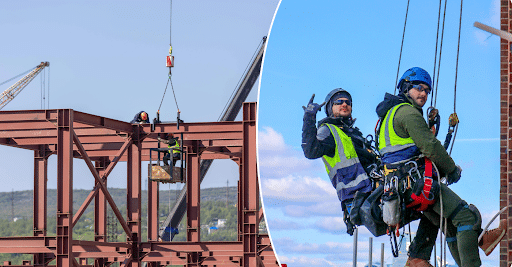When it comes to embarking on a building project in Auckland, selecting the right builder holds immense significance. With several options at your disposal, it can be quite a challenge to identify the commercial builder that perfectly aligns with your specific needs.
This article aims to offer insights into the process of making this selection. By adhering to these guidelines and considering all the factors, you will be able to discover the commercial builder that will be perfect for your project in Auckland.
Table of Contents
1. Clearly Define Your Project Requirements:
Before delving into the search for a builder, it’s crucial to have a crystal clear understanding of what your project demands. Determine the scope, timeline, and budget for your venture. Are you aiming to construct an office space or renovate an existing structure?
Take into account aspects such as size, location, design preferences, and any unique features or limitations pertaining to your project. By establishing these requirements from the very outset, you can narrow down your search to highly skilled commercial builders in Auckland.
2. Conduct Research and Gather Recommendations:
Once you have precisely defined your project requirements, initiate research on builders who specialise in similar construction projects. Explore websites showcasing portfolios of builders or reach out to local industry associations for recommendations.
Furthermore, seek recommendations from individuals who have had experiences with builders in their own projects. You can never underestimate the value of word-of-mouth recommendations in this industry!
3. Reviewing Portfolios and Experience
Taking the time to review the portfolios of builders is an essential step in assessing their capabilities and expertise. Explore their projects that are relevant to your specific type of commercial construction endeavour, and consider how well they executed them in terms of quality, functionality, and aesthetics.
Look for examples that closely align with your vision while evaluating aspects like compatibility with style and attention to detail. Additionally, evaluate each builder’s level of experience by examining how long they have been in business and whether they have worked on projects of a similar nature or scale.
4. Verify Credentials and Accreditation
To ensure you are working with a team committed to delivering quality work, it is important to verify their credentials and accreditations.
Look for industry certifications and affiliations with other chapters or associations, as well as any awards they may have received. Checking whether the builder holds licenses and authorisations is also crucial. Adequate insurance coverage should be considered before making a decision.
5. Evaluate Communication and Collaboration
Open and transparent communication is vital throughout the duration of your project. This involves not just communicating about timelines, progress updates, and budget considerations but also being attentive to your ideas and concerns.
Arrange meetings with the selected builders to evaluate their communication skills, reliability, and ability to collaborate efficiently. Assess whether they grasp your vision and can offer tailored solutions that meet your requirements.
6. Request Referrals and Client Testimonials
Asking for referrals is a great way to verify a builder’s track record of satisfying customers. Request a list of clients from the builder who can provide feedback on their working experience together. Take the time to reach out when possible or inquire about any client testimonials on the builder’s website or other online platforms.
Ask clients targeted questions regarding project management, adherence to timelines, responsiveness and flexibility in accommodating changes (if required), problem-solving capabilities, and quality of workmanship while staying within budget constraints, as well as overall satisfaction with the completed projects.
7. Assess Financial Stability
Considering stability is crucial as it offers insights into how a commercial builder can handle potential challenges throughout the project’s lifecycle. A secure company will be better prepared to manage costs without negatively affecting its deliverables.
Financial records may not always be publicly accessible due to privacy concerns or business practices followed by companies. However, it is worthwhile to have face-to-face conversations with them and inquire about how they ensure stability throughout construction projects.
8. Request Detailed Quotes
Lastly, but importantly, obtain quotes from each of the builders you are seriously considering. This will allow you to compare their offerings based on your project requirements.
A comprehensive quote should include information such as project timeline, labour and material costs, and allowances for contingencies. Strive for transparency without any hidden surprises. Use these quotes to evaluate which builder best fits your budget and overall proposal while effectively addressing your project’s needs.
Conclusion
Selecting the right builder for your next project is a decision that requires careful consideration. By following these guidelines and taking into account the factors discussed, you can make a choice that aligns with your requirements, budget constraints, and vision of success.
Remember: thoroughly assessing qualification criteria, past experiences, client references, and communication skills are essential in establishing a partnership with a reputable commercial builder dedicated to fulfilling your aspirations.





